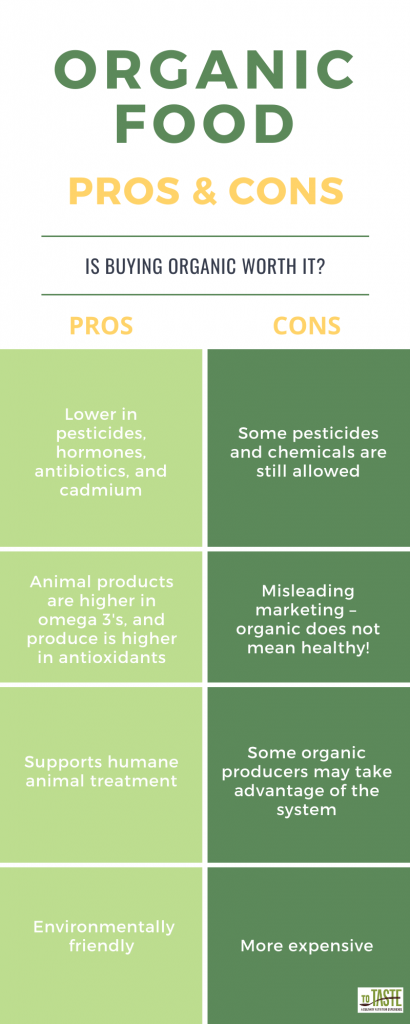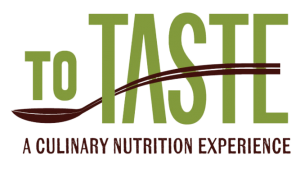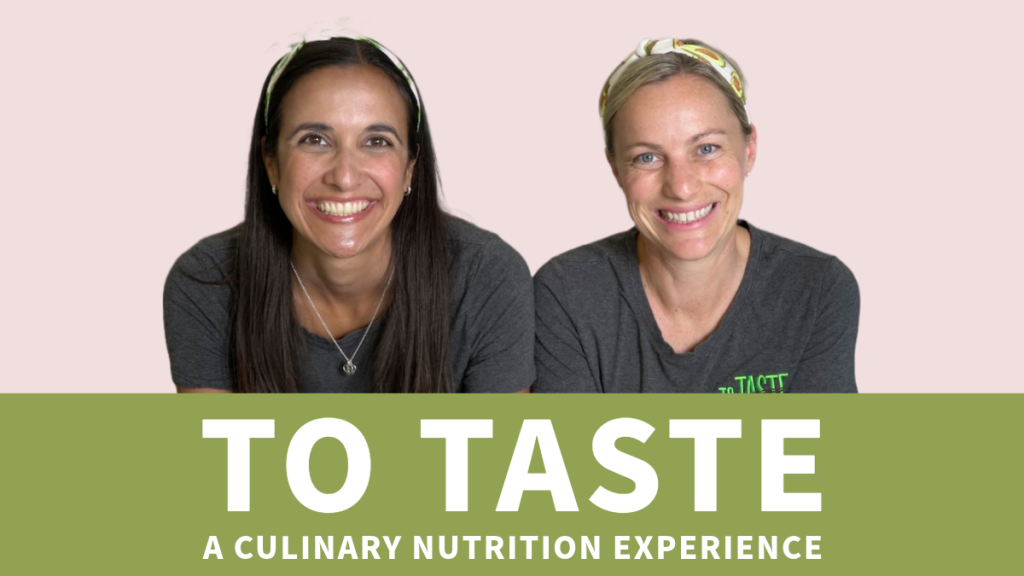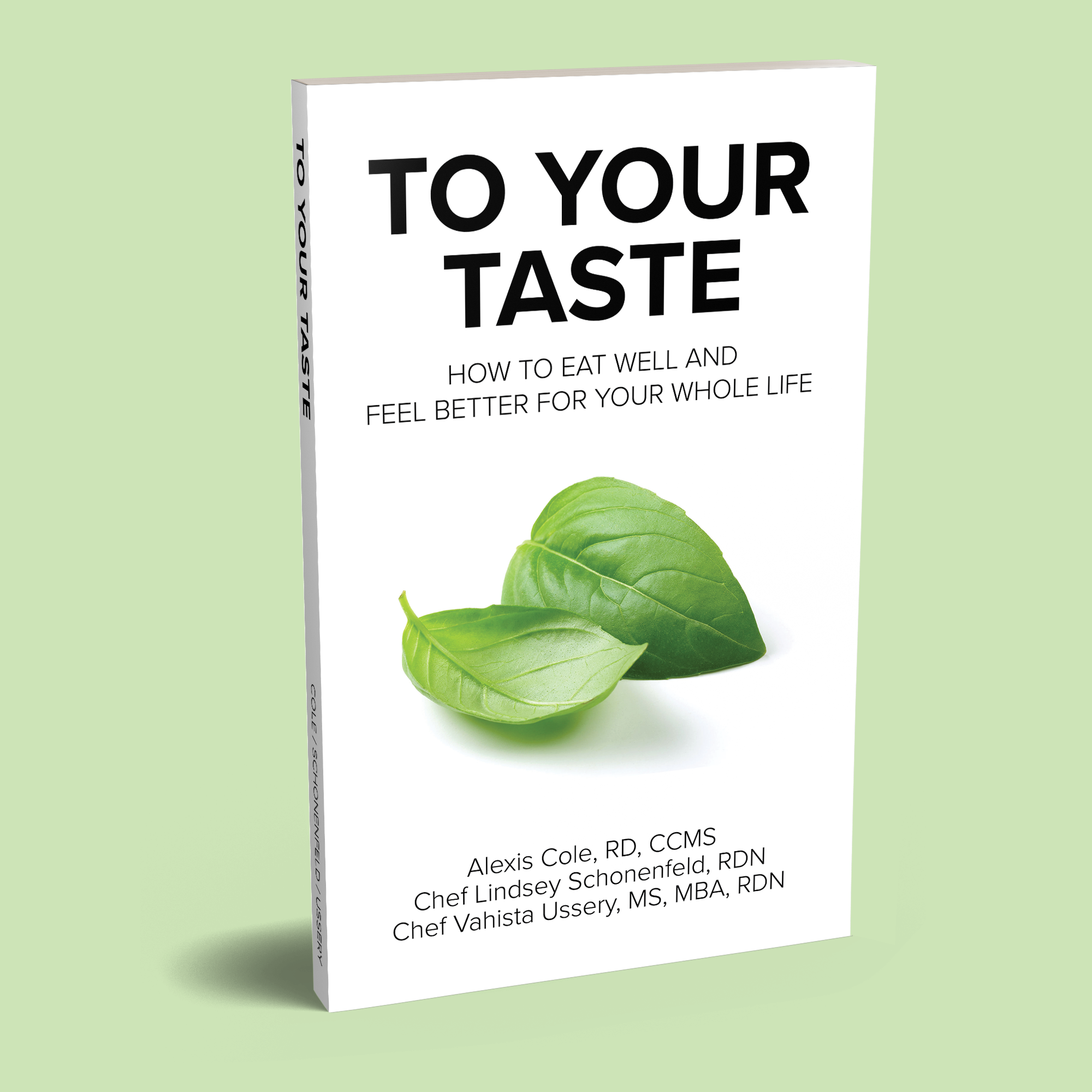Organic food sales are on the rise. Whether or not it’s for the right reasons, we view this as a good sign that people are trying to improve their health! (1) Many people associate the word organic with healthy, but that is not necessarily the case. An organic gummy bear is still candy, just maybe with less pesticides. The same goes for other candies, cakes, cookies, chips, etc. So put down that bag of organic gummies and learn all about organic food facts with us!
What Does “Organic Food” Mean?
We wish that we could just provide one clear cut definition of “organic”, but there are several definitions, and they vary for different foods.
The information below is also in our Ingredient Guide, but we have listed it again here for quick review. Let’s take a look!
- Produce: plants are grown in soil that had no prohibited substances applied for three years prior to harvest. Prohibited substances include most synthetic fertilizers and pesticides. Genetic engineering is prohibited.
- Meat and poultry: animals are raised in living conditions accommodating their natural behaviors (like the ability to graze on pasture), are fed 100% organic feed and forage, and are not administered antibiotics or hormones.
- Dairy: milk must come from a cow that has not been treated with antibiotics, has not been given hormones (for either reproduction or growth), and has been fed at least 30% of its diet on pasture.
- Eggs: cage-free or free-range hens have access to the outdoors and receive certified organic feed. The feed cannot have synthetic pesticides, fungicides, herbicides or fertilizers, and 100% of the agricultural ingredients must be certified organic.
- Processed foods:
- 100% organic: foods cannot contain artificial preservatives, colors, or flavors and require that their ingredients are organic, with some minor exceptions.
- Made with organic: 70% of the ingredients must be certified organic. (2)
Another definition to note (well, really a lack of definition), is of the word natural. It definitely does not have the same meaning as organic. In fact, the FDA does not have a formal definition for this term; it considers natural products to be ones that contain no artificial ingredients. Although not very meaningful, the USDA has defined natural meat. According to their definition, natural meat must not contain artificial ingredients or colors and can only be minimally processed. (3)
Organic Farming Facts
Produce
Do organic farmers avoid using pesticides? Not necessarily. Organic farmers must work to control pests, weeds, and diseases through physical, mechanical, and biological controls. However, they can use pesticides as a last resort. (4) This National List includes all of the acceptable synthetic pesticides that an organic farmer can use.
Organic farmers use crop rotation, cover crops, animal manure, compost, plant by-products, and other biological materials to nourish and protect their crops. Conventional farms may employ these practices as well, but unless you talk to the farmer, it’s hard to know. Organic farms cannot use sewage sludge, irradiation, or genetic engineering. (4)
Meat and Poultry
Organic ranchers must provide outdoor areas for animals to access direct sunlight and space to exercise. Shelters must protect animals from severe weather and provide shade, but also must be large enough to allow room for the animals to move about freely.
During the grazing season, cattle, goats, and sheep are allowed to pasture to forage for grass and plants. (4)
Organic chickens must have outdoor access, but that could simply be through a door at the end of their coop. (5) Pasture raised, although not necessarily organic, would infer that the chickens had access to the outdoors to feed on bugs, seeds, etc. (6)
All of the food provided to organic animals must be organic itself, including the pasture for grazing. Even plant-based bedding like hay must be organic. Antibiotics – unless medically necessary – and growth hormones are prohibited. (4) Note that the USDA prohibits the use of growth hormones for poultry and hogs, organic or not. (7)
Are Organic Foods Healthier?
This is a big question and a source of much confusion and debate.
Consumers of organic food tend to be healthier overall, which can make research difficult. (8) There are a lot of variables at play; it’s hard to narrow down if the organic aspect is what makes the ultimate difference.
Studies have shown these effects as possible health benefits of following an organic diet:
- Reduction in overweight and obesity
- Lower incidence of allergies in children (8, 9)
- Reduced risk of non-Hodgkin lymphoma
- Improved fertility
- Reduced risk of pre-eclampsia during pregnancy
- Reduced birth defects (9)
People that consume organic foods tend to have less pesticide residues in their bodies than people that consume conventional foods; we ingest more pesticides from conventional produce than organic produce.
However, this is not to say that organic produce does not contain pesticides; remember, they are allowed as a last resort. In addition, poor practices, spray drift, and improper separation from conventional foods could raise organic food pesticide levels. (8, 9)
Are Pesticides Bad for our Health?
Many people worry about pesticide-related cancer and neurological disorders. Do these worries hold any merit?
The Environmental Protection Agency (EPA) is responsible for overseeing the safety of synthetic pesticides and must remove ones proven to be harmful from the list of acceptable options.
The EPA pays particular attention to pesticides used on foods commonly eaten by children; pesticide levels are higher in concentration in their small bodies. Some studies suggest that increased pesticide levels may have adverse effects on children’s cognitive development. (1) From 1996 to 2006, the EPA cancelled or restricted 270 pesticides because they showed potential harm to children and infants. (10)
The pesticides currently being used on produce do not prove to cause human harm, but the EPA is continuously monitoring their safety. The big unknown is if or when a pesticide will be deemed unsafe. When tested by the FDA, the majority of produce in the US has pesticide levels below EPA threshold levels. This means that consuming conventional produce is considered safe. (11)
If organic produce was truly free from pesticides and cost the same as conventional, it would be an easy choice to make. Unfortunately, that is not the case. It’s up to you to make the choice of buying organic or conventional based on your lifestyle and budget. What is most important is aiming for at least 5 servings of fruits and vegetables every day– organic or conventional! Try out our Dairy Free Smoothies Base Recipe for an easy way to increase your fruit and vegetable intake.
Nutritional Differences
Organic vs. Conventional Produce
Organic and conventional produce do not differ much nutritionally; their vitamin and mineral compositions are similar. However, organic produce is oftentimes higher in polyphenols that may prevent many chronic diseases. (8, 12, 13)
In addition to being higher in pesticides, conventional produce may be higher in the toxic metal cadmium, – a classified carcinogen. (8, 13) Fortunately, levels are low and do not seem to cause harm. The benefits from consuming produce, conventional or organic, outweigh the risks! (14) The antioxidants negate cancer-causing risks.
Organic vs. Conventional Meat and Dairy
It’s said that you are what you eat. Have you ever considered that you are also what you eat eats?
Organic animal products have better fatty acid profiles than conventional animal products, with higher amounts of omega-3 fatty acids and lower amounts of saturated fatty acids. In fact, organic milk may have 50% more omega-3’s than conventional milk! (15) Check out this article to learn more about dairy-based vs. plant-based milk.
There is not as much research on the fatty acid profiles of organic eggs. However, it is reasonable to assume that organic eggs might be higher in omega-3s, especially if the chickens have more time on pasture.
There are better sources of omega-3 fatty acids than meat and eggs, such as salmon or walnuts. However, with the amount of meat and dairy that Americans eat, switching to organic choices could still be impactful.
Overall, the nutrient profiles of animal products depend a lot on the feeding practices implemented by individual farms – organic or not. The more pasture time that animals receive, the better they are for us to eat.
In addition to better fatty acid profiles, organic milk may also be lower in growth hormones (only containing natural growth hormones as opposed to synthetic) and free of antibiotic and pesticide residues. (16) We need more research to confirm these findings. We don’t know whether or not these chemicals are detrimental to our health; however, it’s at least comforting to know that organic farmers are following regulations.
Final Thoughts
We cannot overstate how important it is to eat more fruits and vegetables – organic or not! The benefits of consuming fruits and vegetables far outweigh the risks of consuming pesticides. (11)
The EPA suggests washing and scrubbing fruits and vegetables under running water, trimming fats from meats (pesticides accumulate in fat), and eating a variety of foods to minimize exposure to a single pesticide. (14) Sounds like good advice to us!
We have summed up the pros and cons of organic food below. We encourage you to do your own research, talk to farmers and producers if possible, and make the choice that is best for you!

What foods do you choose to buy organic? Leave your comments below!
To YOUR Taste!
Chef V










